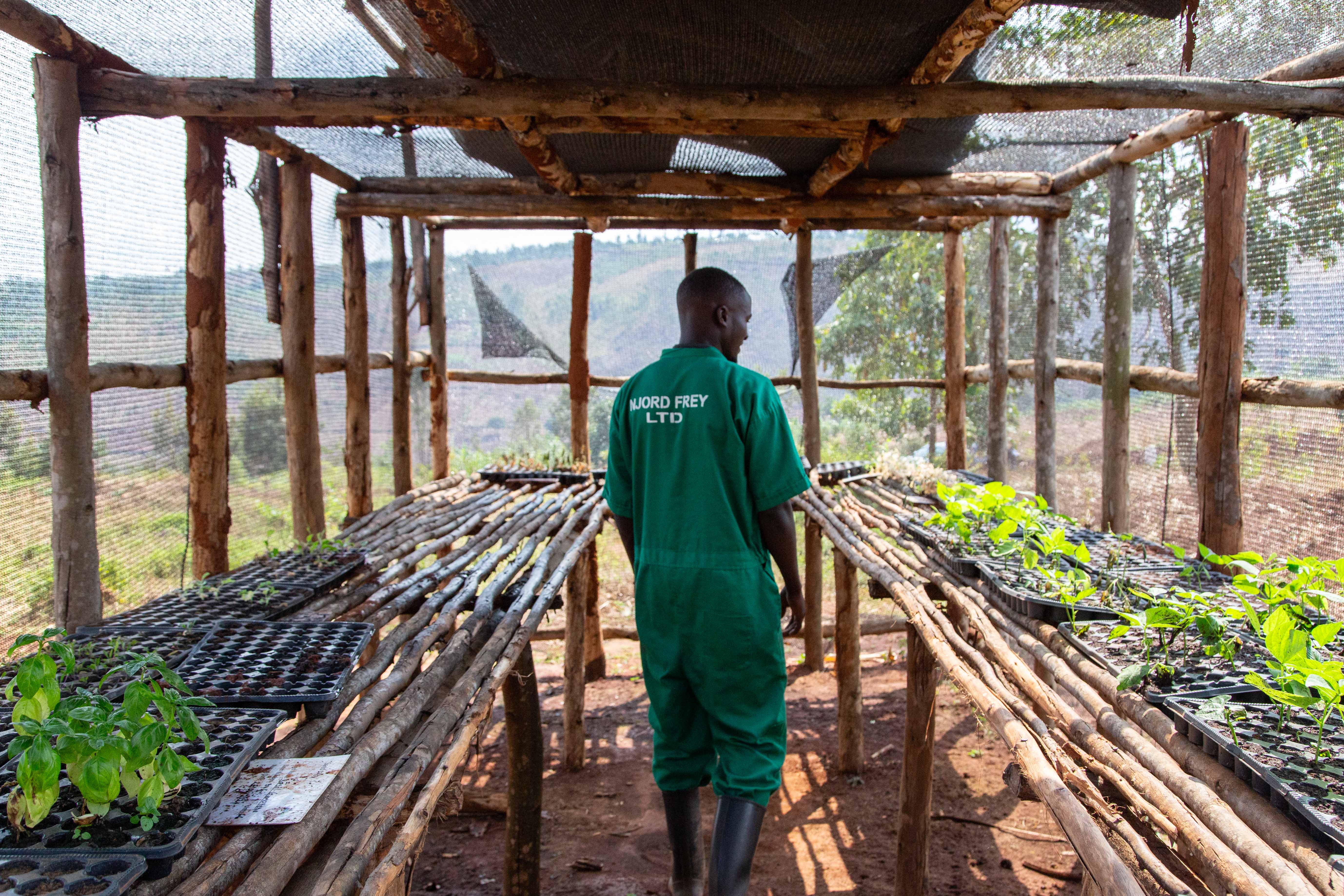Njordfrey
Rwanda is working to produce high-quality crops in sufficient quantities to reduce and prevent malnutrition, whilst also providing enough to sell and export. However, in a landlocked country where approximately 75% of crops are grown on smallholder farms, this is a significant challenge, particularly as the population continues to grow.
Njordfrey identified this as an opportunity and responded in 2020 by showcasing the potential of aquaponic farming to transform food production in Rwanda.
The system is the epitome of circular practice: using fish waste to feed plants, which supports more efficient plant growth and is then filtered clean and reused for the fish, limiting water waste and supporting year-round harvests.
As the seasons have become more unpredictable in Rwanda through the impact of climate change, and as soil is degrading as a result of crop intensification, aquaponics provides an ideal solution. This water-based system produces high quality and quantity yields providing not only nutritious vegetables but vital fish protein.
Though the system is expensive to install, Njordfrey views this investment as a long-term strategy, significantly benefitting individual farmers and the country as a whole.
Their aquaponic solution also responds to the challenges of access to finance for agricultural innovators. There has been some reticence to fund agriculture, seen as being unreliable and unpredictable as a seasonal business, made more precarious by a changing climate. Njordfrey seeks to dismantle this unpredictability by rolling out aquaponic systems across the country which support year-round crops, while minimizing the effort required in classic farming, including digging, weeding, and complex irrigation systems.
Even with their circular system, the team continues to seek additional ways to prevent waste and maximize output to support business growth, including packaging options for their fish and vegetable produce.

